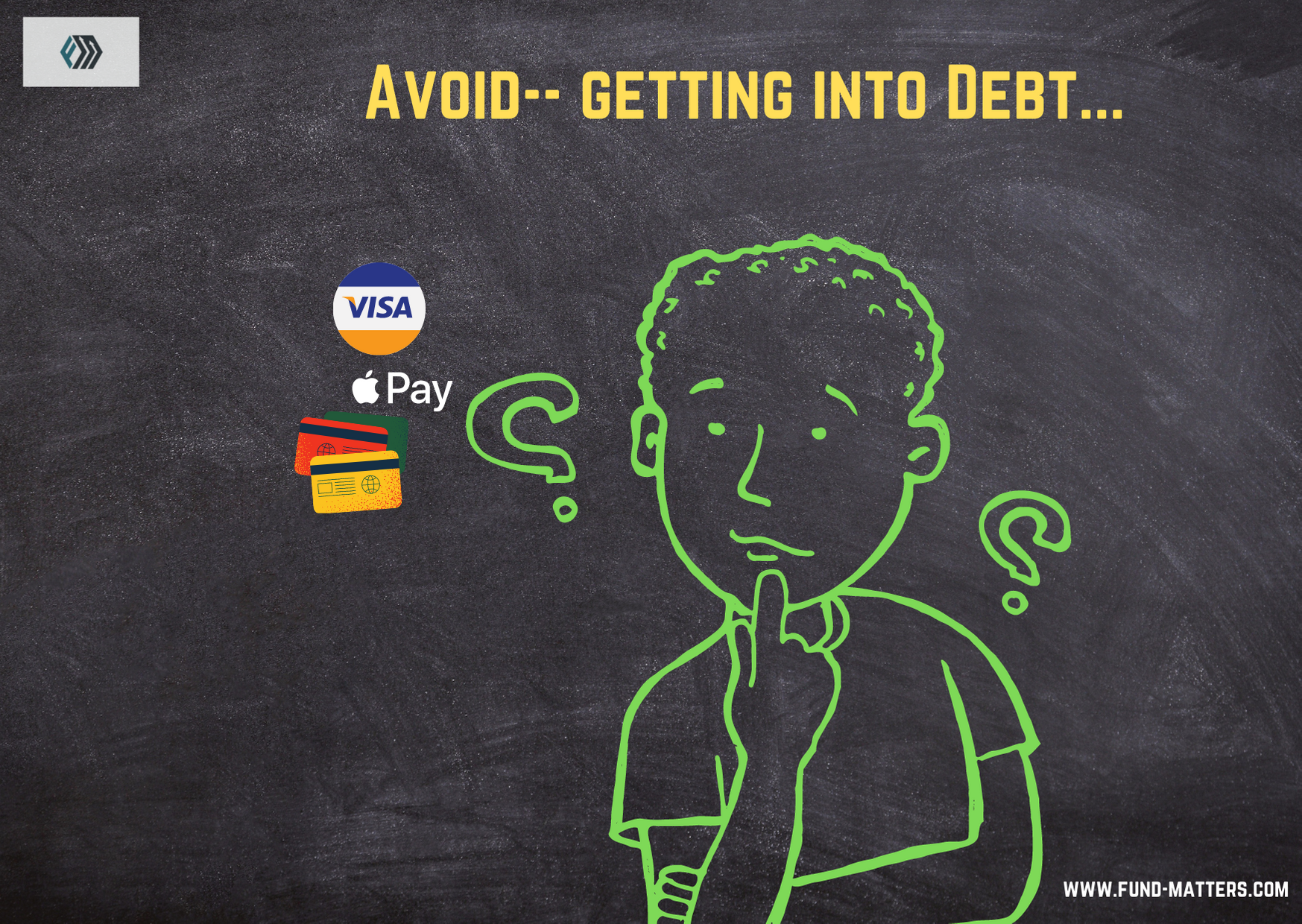How Can I Avoid Getting Into Debt ???
Fund-Matters | July 3, 2021 | Credit Cards, Debt Mangement, Loans, Mortgage, Personal Finance, | 0 Comments

A famous quote:- ““Debt is like any other trap, easy enough to get into, but hard enough to get out of.”
Being in debt is no fun, but being debt free or having manageable debt can make your life more rewarding and stress-free.
No one actually wants to get into debt or carry a debt burden, but this is just one of those things that happens without your notice due to easy availability of credit cards and loans.
However, one can avoid getting into debt by taking control of his/her finances and by following some easy tips:
- Use cash: Using cash or debit card wherever and whenever possible helps you to keep control over your spending.
- Make budget: Making budget for each expenses is important. It not only helps to control spending but also helps to save more.
- Use your credit cards wisely: Make sure not to buy luxurious things or expensive items on credit cards. Credit cards might give a feeling of ‘affordable’ but remember it’s not your earned money, it’s a borrowing and you need to pay it back with high interest rate. Hence, every expensive buying will add and accumulate more debt. One good rule to keep in mind is if you can’t pay for something in cash, then you can’t afford it with a card.
- Keep your emergency fund ready-Always make sure to have enough in your emergency fund. This will help you to survive in case of job loss or to cover the expenses in case of any unexpected situations.
- Avoid impulsive purchases which comes with offer of ‘pay later, buy now’ which ultimately aims to drags you into debt. We live in a microwave society, where we want things instantly/right now. We are losing patience and can’t wait, plan and save money for buying or to make any big purchase. Hence, making budget, planning for big purchases and avoiding impulsive buying is necessary.
- Keep track of your debt: If you have credit card, loan etc. then make a list and keep track of all like balance amount, interest rate, minimum dues etc. Pay your minimum dues regularly.
- Understand good and bad debt- It’s important to understand the which is good debt and which is bad debt. examples of good debt are home loan, student loan or business loan while personal loan, car loan and credit cards are counted as bad loans. It’s recommended to pay off bad loans first as they have higher charges and does not help in any asset building.
- Pay off/ reduce debt by exploring the strategies – like debt consolidation, refinancing, balance transfer etc. in case your have multiple debts/credit cards or personal loan.
- Plan for the bonus money/salary hikes: If you are getting any bonus money or pay rise in your job then plan to invest or use this money properly.
- Avoid taking multiple credit cards. Multiple credit cards means multiple payments with different interest rates. This also means you can lose track of your spending and payments. Therefore, limit the usage of credit cards.
- Keep track of your expenses- note down your expenses in excel or in simply in a notebook, update it monthly or regularly, reduce your unnecessary expenses.
To put simply, ‘keep control over your spending’ and this will automatically help you to avoid getting into debt.



